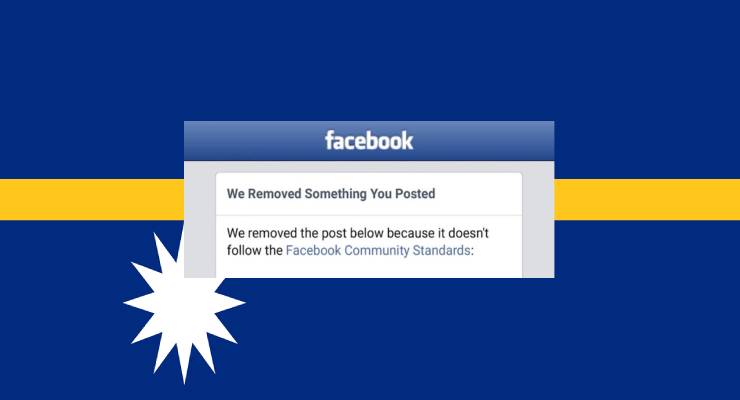
Nauru police leaned on Facebook’s parent company, Meta, and recommended using the country’s cybercrime legislation to crack down on speech attacking politicians, leaked emails show.
More than 280,000 emails alleged to belong to the Nauru Police Force were leaked earlier this week, purportedly in protest at Australia’s use of the island nation for immigration offshore processing. Some of these emails showed police staff mocking an asylum seeker who had self-mutilated and efforts to avoid scrutiny at the refugee processing centres.
These documents also show Nauru police seeking to crack down on speech criticising Nauru politicians by requesting that Meta remove content from Facebook, sometimes successfully, while other times recommending that citizens be prosecuted.
Like many nation’s police, the Nauru Police Force were in close contact with then-Facebook employees. Emails show Nauru police repeatedly reporting posts to the tech company asking them to take content from an account down.
Sometimes, these attempts were unsuccessful. In July 2021, a Meta law enforcement outreach staff member responded to an email from a Nauru police intelligence staff member who asked the company to review posts made by one account “directed to local politicians”.
Meta’s employee responded that the content didn’t break the site’s rules: “I don’t seen [sic] any hate speech/community standards violations.”
On other occasions, Facebook employees cooperated. Nauru police spent months trying to respond to a Nauruan who lived in Melbourne posting on Facebook about Nauru MPs. Those posts range from political criticism (“this government is a bit disastrous”, claiming the Nauru government is relying on ventilator donations from other countries) to sexually explicit insults and even a threat of violence.
After seeking advice from Australian police, who found that the comments would not meet Australian legal standards for cybercrime, Nauru police requested a meeting with Facebook staff over the matter. After the meeting, emails show that the Facebook staff requested translations of the posts (Meta doesn’t offer Facebook in Nauruan, nor does it have content moderators who can read it).
After sending through a series of translated posts, a Facebook staff member responded: “I’m happy to advise that our teams reviewed the posts that you identified in your investigation and they have now been removed for breaching our Community Standards.”
In another instance last month, Nauru police instead considered whether a former police officer could be charged for a Facebook comment about Nauru President Lionel Rouwen Aingimea. According to internal emails, staff considered what they could do about a post calling the president a “bastard”.
After Director of Public Prosecutions Ronald Talasasa first recommended getting Facebook or internet service provider Digicel to “assist” with such comments, he then provided advice that recommended charging the former officer with criminal defamation.
These leaked emails reveal that Nauru police had a pattern of using their influence and powers to try and quash negative speech that offended the country’s politicians.








They wouldnt be the the first policeforce to use their power for corrupt purposes. Nothing new about this behaviour.